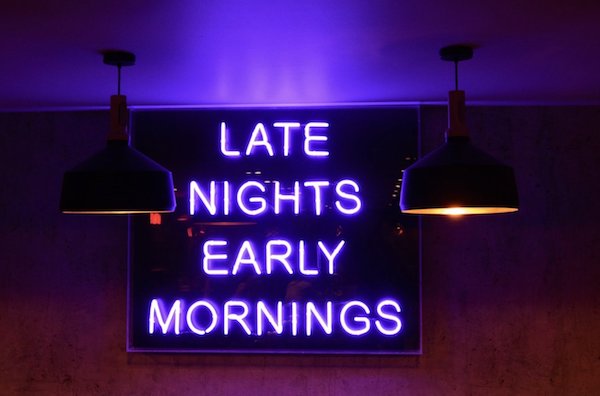
Image Credit
This lesson will focus on using a variety of expressions related to hard work.
Introduction
This lesson will help you use these idioms describing hard work. You will also get a chance to talk about your own experiences.
Warm Up
What’s the difference between being busy, and being productive? Which one requires more hard work?
Language
Please consider each expression and match them to the images. Your instructor has an example and a question regarding each one.
- be snowed under—have a lot of work to do.
- work your fingers to the bone—work very hard for a long time.
- crack the whip—use your authority to push someone to work harder.
- all in a day’s work—express the idea that although you have accomplished something, it's just a normal part of your job.
- put your nose to the grindstone—work very hard.
- burn the candle at both ends—go to bed late and get up early.
A:  |
B: |
C: |
D: |
E: |
F: |
Practice
A. Complete the anecdote
Read each section and choose an appropriate idiom from the list above.
- Basketball legend Michael Jordan was known to practice at least 5 hours every day. In addition to that, before regular practice started, Jordan would practice at his house. He...
- Today I had to prepare for a big presentation. I worked through lunch, but when I showed my PowerPoint slides to my manager, he had a lot of feedback. So I ended up revising most of the slides. But I'm really happy with the final version. It's...
- Our colleague Jim can't come out for drinks after work. He...
- Back in college, I not only studied, but I also worked a part-time job, and on top of that, I went out with friends 3 or 4 nights a week. I...
- Steve Jobs was known to push his employees harder than they even thought possible. But apparently, at times he wasn't that nice about it. He...
- Our team has a big deadline next Monday. I'm not sure we'll make it. We'll have to...
B. Discussion
Use idioms to discuss the following questions.
- When in your life have you had to work the hardest?
- Who is the hardest-working person you know?
- Have you ever been obliged to work more than you wanted to?
—
Images:
Joel Tasche via Unsplash
Vignesh Moorthy via Unsplash
Jeff Griffith via Unsplash
Brad Neathery via Unsplash
Malte Wingen via Unsplash
Nick Fewings via Unsplash